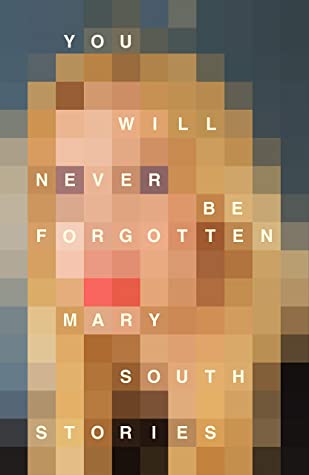Reading these two story collections back-to-back presented an eerily similar aesthetic experience to my encounter with Geen and Ferrante last week, only in reverse. Both collections deal with social change, buried secrets and personal crisis. Both employ elements of the fantastic to secure their effects. Yet the manner of approach, the mode of attack could not be more different, with the internal temperature of these stories, above all, providing a fascinating contrast.

Enriquez’s stories (translated from the Spanish by Megan McDowell) take place against the shifting, unstable backdrop of dictatorships past. In ‘The Intoxicated Years’ we follow a group of teenagers as they confront issues of identity, addiction and sexuality in the years following the fall of the Peron regime. The political repercussions and personal reckonings that preoccupy their parents are to their children a matter of intense dullness, of ‘yeah, whatevs’; set against the agonies of teenage angst, the adult world even in its moment of greatest precariousness feels tedious, played out, irrelevant. Only as they grow older do they begin to understand how no one can live surrounded by such a society and emerge unscathed.
Other stories come populated more literally with ghosts from the past and monsters of the present, and Enriquez’s manner of merging the bitterest social commentary with elements of horror – see ‘Under the Black Water’ for a Lovecraft-tinged death cult (this story carries strongly resounding echoes of Clive Barker’s ‘The Forbidden’ aka Candyman) and ‘The Neighbour’s Courtyard for a hideously unsettling variation on the zombie story – is brilliantly handled. The stories’ boldness in confronting issues of violence against women is, for me, the strongest, most vital aspect of this collection. Women here struggle not only against weak, bullying husbands and cowardly fathers, they have the whole machinery of systemic machismo to deal with as well:
How many times had a cop like this one denied to her face and against all evidence that he had murdered a poor teenager? Because that was what cops did in the southern slums, much more than protect people: they killed teenagers, sometimes out of cruelty, other times because the kids refused to ‘work’ for them – to steal for them or sell the drugs the police seized. Or for betraying them. The reasons for killing poor kids were many and despicable.
My personal favourites among these stories are those in which the horror is less overt, where the line between the uncanny and the everyday is most cunningly hidden. ‘An Invocation of the Big-Eared Runt’ follows a tour guide as he entertains tourists with tales of the city’s most notorious murderers and serial killers, among whom the eponymous big-eared runt is most notorious of all, most especially because of the studied delight he seemed to take in the crimes he committed. As Pablo becomes ever more obsessed with the runt, the more the strain of his home life seems to tell on him. The story’s final lines are chilling, all the more so because they are inconclusive. The collection’s tour-de-force is ‘Spiderweb’, in which a young woman tied to a peevish and controlling husband goes on a day trip with him and her extravagantly charismatic and forthright cousin Natalia. Juan-Martin’s nagging and complaining is a constant irritation, and when their car breaks down on the return journey a reckoning seems at hand.
The landscape, atmosphere and tension of ‘Spiderweb’ are reminiscent of stories by Roberto Bolano in which the threat of violence, ever-present, hovers just out of sight. As soldiers of the regime torment a waitress at the neighbouring dining table, Juan-Martin’s unwavering sanctimoniousness threatens to push the threat over the edge towards calamity. Natalia though has her own ideas on how to deal with Martin. Once again, this story is all the more effective through leaving the reader to draw their own conclusion.
After the heat, dust and sweltering tension of Enriquez, I found the atmosphere of Mary South’s stories chilly at first; studied, beautifully turned and just a little too careful. I have seen other critics reference the SF TV series Black Mirror in their assessment of this debut collection, but the more I read of You Will Never Be Forgotten, the more this description seemed too pat, too obvious, and not wholly accurate. It is only really the first story, ‘Keith Prime’, that recalls Black Mirror, not to mention Kazuo Ishiguro’s novel Never Let Me Go, and in spite of being (as are all the stories) beautifully written, it is the one I find least interesting, precisely because its minimalist, soft-sci-fi tropes have been rehearsed before. South makes overt use of science fiction again in ‘To Save the Universe, We Must Also Save Ourselves’, in which the messy real-life dramas of actor Faith Massey are set against the unswerving heroism of her screen incarnation, Dinara Gorun, captain of the spacecraft Audacity.
Fans of the movie Galaxy Quest will find themselves chuckling happily along, and the story leaves no doubt it is doing its own thing by placing Faith’s battle with entrenched sexism – the most indestructible monster she has faced both onscreen and off – front and centre. Far stronger though are those stories in which South turns away from convention and pushes hardest against the boundary between the disdainfully ironic and the overtly uncomfortable. ‘Frequently Asked Questions About Your Craniotomy’ starts out reading like a conventional ‘list’ story but gradually strays into territory that is both horrific and heart-shattering. ‘Architecture for Monsters’ follows a journalist-fan of the groundbreaking architect Helen Dannenforth as she works to uncover the inconvenient truths at the heart of a genius’s life and art. ‘The Promised Hostel’ is, in common parlance, something of a mind-fuck, also a great story, while the title piece ‘You Will Never Be Forgotten’, in which a content moderator at ‘the world’s most popular search engine’ seeks to confront her rapist, is equally bold and ambiguous.

If South’s collection seems to lack the visceral, palpable urgency of Enriquez’s, this could well be down to the fact that I read the two books so close together. The elegance of South’s writing, the smooth turns from the domestic-banal to the queasily unnerving, her unswerving examination of aspects of the way we all live now makes You Will Never Be Forgotten well worth seeking out, and leaves the reader in eager anticipation of what South will write next. As for Mariana Enriquez, I understand her next novel is shortly to appear in English translation and I cannot wait. In the meantime, I would urge you to take an hour’s break to watch this conversation between Enriquez and M. John Harrison at this year’s (unavoidably Zoom-based) Buenos Aires Literary Festival. The insights into their writing lives, literary process and aesthetic outlook are many, varied and scintillating. Well worth your time.